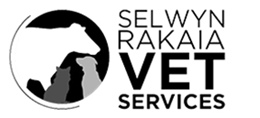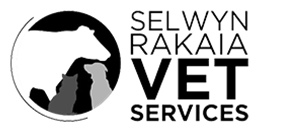Internal parasites (endoparasites) are responsible for significant production losses in dairy cattle. Decreased milk production can occur in subclinical cases whereas larger worm burdens may lead to severe disease and even death. Parasites damage the gut, lungs and liver in cattle. Roundworms affect the abomasum (true stomach), intestine, lungs and liver. Tapeworms parasitize the intestines. Flukes parasitize the liver and rumen.
Gastrointestinal parasites (roundworms): typically a problem of youngstock. Calves are relatively safe from most worms while they are drinking milk or suckling their mothers (beef). However, they are vulnerable from weaning.
The main roundworm culprits, Ostertagia, Trichostrongylus and Cooperia, are widespread in cattle areas in New Zealand. Pasture larval loads peak during warm and wet periods, notably autumn and spring. Mature worms live in the animal’s gut and lay thousands of eggs. These eggs then hatch on pasture and develop into an infectious, free living larval stage, which can be re-ingested to restart the cycle.
Roundworms may absorb nutrients from the host’s food within the gut. They can destroy mucosal gut cells, resulting in inflammation, secondary bacterial infection and ulceration. They can suck blood, physically obstruct the gut lumen and damage other organs as they migrate through the body. Sometimes they may activate the immune system causing hypersensitivity of the gut.
Gastrointestinal parasites – less common worms and fluke
Lungworm
Lungworm infections can be significant in young cattle under approximately 10 months of age. Infective Dictyocaulus larvae are picked up off the pasture and swallowed. They penetrate the gut, but then travel to the lungs where they grow to adults. Adult worms lay eggs in the lungs, which are coughed up, hatch and are passed out in the faeces so the cycle continues...
Infection results in a productive cough, which is unresponsive to antibiotics. Severe infections can lead to breathing difficulty and even death. Treatment with antibiotics and anti-inflammatories can support the recommended de-worming anthelmintics.
In New Zealand, regular worm treatments for gastrointestinal worms normally cover lungworm; hence lungworm disease is only seen rarely in situations where pasture contamination is high, or anthelmintic treatment regimes are poor.
Fluke
The common liver fluke, Fasciola hepatica, is a parasite of all grazing ruminants. Its free living intermediate stage penetrates snails in order to reproduce. Severe liver disease and anemia is caused by larvae migrating through the liver, blocking ducts and laying eggs. Chronic wasting, poor production and death may occur as a result.
As summer/autumn is peak season for picking up fluke, a good drench in the autumn will clean out infections, and pastures will be very safe in the winter.
Tapeworm
Tapeworms are reasonably common in cattle, particularly calves 4-7 months of age. Their large, creamy white segments can be visualized in faeces. They may also be identified in the small intestine on a post mortem.
Ordinary tapeworms cycle through pasture mites. Unless tapeworm burdens become overwhelming and block the intestine, they are not considered to be a significant disease or production issue. They are controlled with normal tapeworm drenches.
Other tapeworms, such as ‘beef measles’ or hydatids, can cycle through humans and other species e.g. dogs. These do not pose a great threat to cattle, but farmers should be aware of them.
Diagnosis
Endoparasite infections in cattle are normally diagnosed by faecal egg counts. Laboratory examination can determine the type of infection present in addition to the concentration of eggs. This provides information regarding the number of worms a cow is infested with. Blood testing may also be used to diagnose fluke infections. The blood test detects immature liver fluke and may demonstrate prior exposure as well as current infection.
Control
When it comes to controlling worms, there is no substitute for a good oral drenching program. Good drench programs not only keep the animals (calves) from building up huge worm burdens; they also help to create clean pasture for the animals to graze on. Strategic pasture rotation is another area to consider for an effective parasite control program.
Adult cows generally carry very light worm burdens and shed few eggs. However, they may be more vulnerable during the periparturient period as their immunity wanes and pasture contamination may rise. A number of studies with new anthelmintics suggest there is an economic advantage to worming dry cows, particularly close to calving.
Treatment and Prevention
Prevention of parasites is based on controlling the free living stages in the animal as well as the amount of eggs and larvae contaminating the pasture. We offer a large array of drench products to help achieve this goal. However, a successful drench program requires careful planning.
Untreated, or incorrectly treated, worms can be a major health and production issue on farm. Parasitism can be fatal, or can lead to long term growth reduction and under performance. Larval levels can build up on pastures, creating huge challenges in certain situations, and drench resistance may develop, increasing the toll worms take on the system.
Major drench families may be rotated, or combination drenches employed. Egg count reduction tests should be done occasionally to monitor for resistance. Egg count monitoring should be done as a follow up.
Most dairy calf drenching programs are built around approximately 6 treatments at 4-6 week intervals from 3-4 months of age. Generally, drenched stock should be shifted to fresh uncontaminated pasture. This can be generated by harvesting, cropping, grazing by mature animals, or grazing by another species e.g. sheep. There are many options to consider with a drenching program. Please see us before making any decisions. It is too easy to choose a plan or a product which wastes money and is ultimately ineffective.


